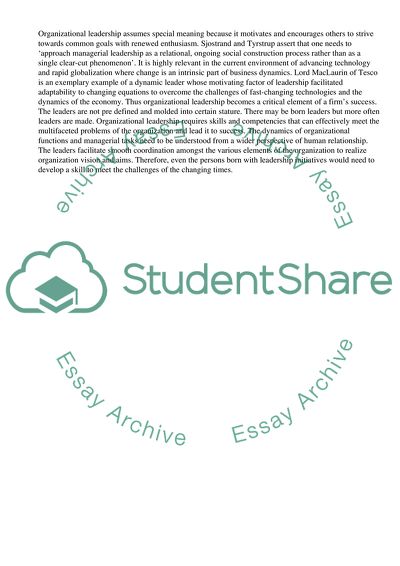Cite this document
(Are Leaders Born or Made Term Paper Example | Topics and Well Written Essays - 1500 words, n.d.)
Are Leaders Born or Made Term Paper Example | Topics and Well Written Essays - 1500 words. Retrieved from https://studentshare.org/management/1739624-are-leaders-born-or-made-organizational-behavior
Are Leaders Born or Made Term Paper Example | Topics and Well Written Essays - 1500 words. Retrieved from https://studentshare.org/management/1739624-are-leaders-born-or-made-organizational-behavior
(Are Leaders Born or Made Term Paper Example | Topics and Well Written Essays - 1500 Words)
Are Leaders Born or Made Term Paper Example | Topics and Well Written Essays - 1500 Words. https://studentshare.org/management/1739624-are-leaders-born-or-made-organizational-behavior.
Are Leaders Born or Made Term Paper Example | Topics and Well Written Essays - 1500 Words. https://studentshare.org/management/1739624-are-leaders-born-or-made-organizational-behavior.
“Are Leaders Born or Made Term Paper Example | Topics and Well Written Essays - 1500 Words”, n.d. https://studentshare.org/management/1739624-are-leaders-born-or-made-organizational-behavior.


